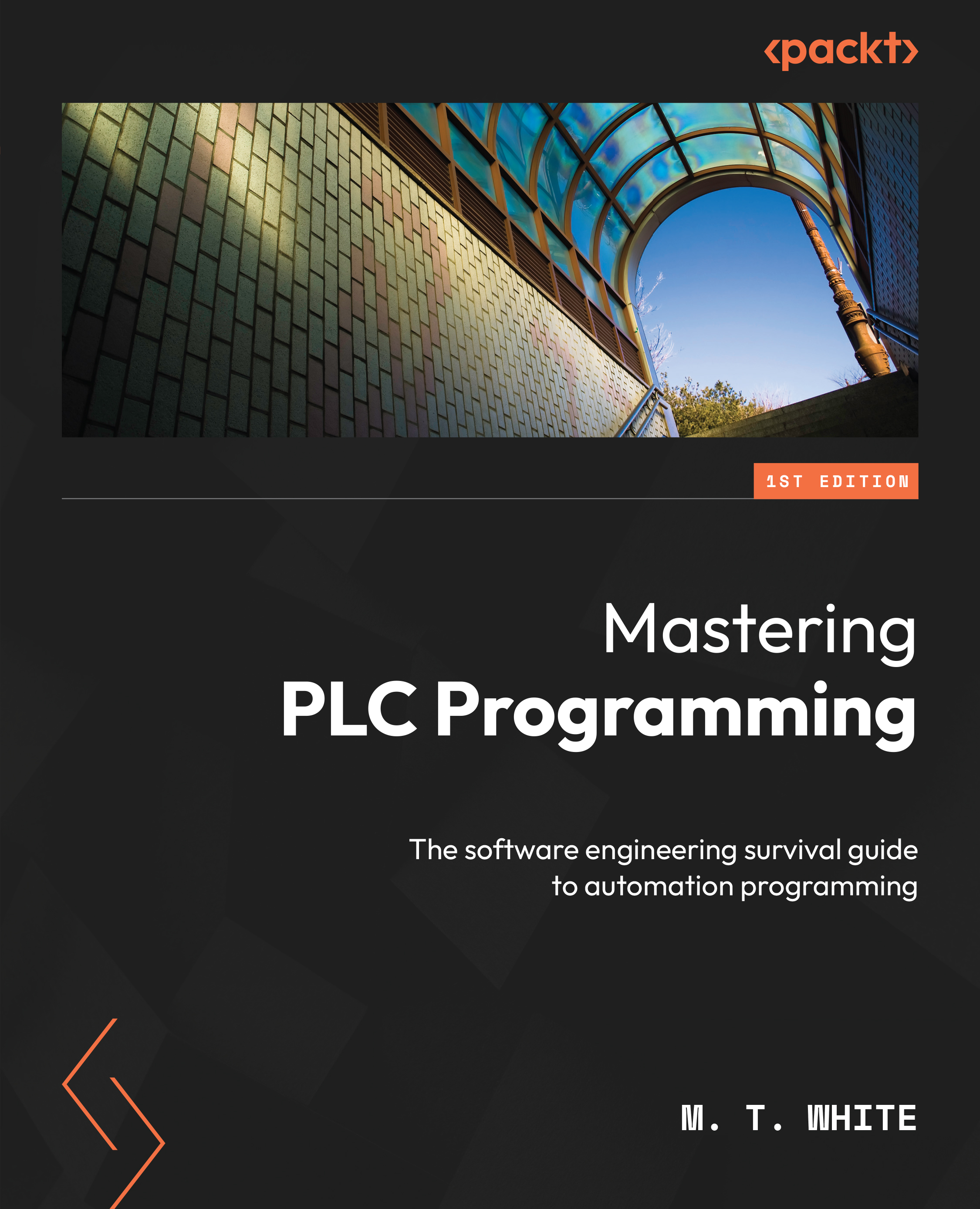-
Book Overview & Buying

-
Table Of Contents

Mastering PLC Programming
By :

Mastering PLC Programming
By:
Overview of this book
Object-oriented programming (OOP) is a new feature of PLC programming that has taken the automation world by storm. This book provides you with the necessary skills to succeed in the modern automation programming environment.
The book is designed in a way to take you through advanced topics such as OOP design, SOLID programming, the software development lifecycle (SDLC), library design, HMI development, general software engineering practices, and more. To hone your programming skills, each chapter has a simulated real-world project that’ll enable you to apply the skills you’ve learned. In all, this book not only covers complex PLC programming topics, but it also removes the financial barrier that comes with most books as all examples utilize free software. This means that to follow along, you DO NOT need to purchase any PLC hardware or software.
By the end of this PLC book, you will have what it takes to create long-lasting codebases for any modern automation project.
Table of Contents (25 chapters)
Preface
Part 1 – An Introduction to Advanced PLC Programming
 Free Chapter
Free Chapter
Chapter 1: Software Engineering for PLCs
Chapter 2: Advanced Structured Text — Programming a PLC in Easy-to-Read English
Chapter 3: Debugging — Making Your Code Work
Chapter 4: Complex Variable Declaration — Using Variables to Their Fullest
Part 2 – Modularity and Objects
Chapter 5: Functions — Making Code Modular and Maintainable
Chapter 6: Object-Oriented Programming — Reducing, Reusing, and Recycling Code
Chapter 7: OOP — The Power of Objects
Part 3 – Software Engineering for PLCs
Chapter 8: Libraries — Write Once, Use Anywhere
Chapter 9: The SDLC — Navigating the SDLC to Create Great Code
Chapter 10: Advanced Coding — Using SOLID to Make Solid Code
Part 4 – HMIs and Alarms
Chapter 11: HMIs — UIs for PLCs
Chapter 12: Industrial Controls — User Inputs and Outputs
Chapter 13: Layouts — Making HMIs User-Friendly
Chapter 14: Alarms — Avoiding Catastrophic Issues with Alarms
Part 5 – Final Project and Thoughts
Chapter 15: Putting It All Together — The Final Project
Chapter 16: Distributed Control Systems, PLCs, and Networking
Assessments
Index
